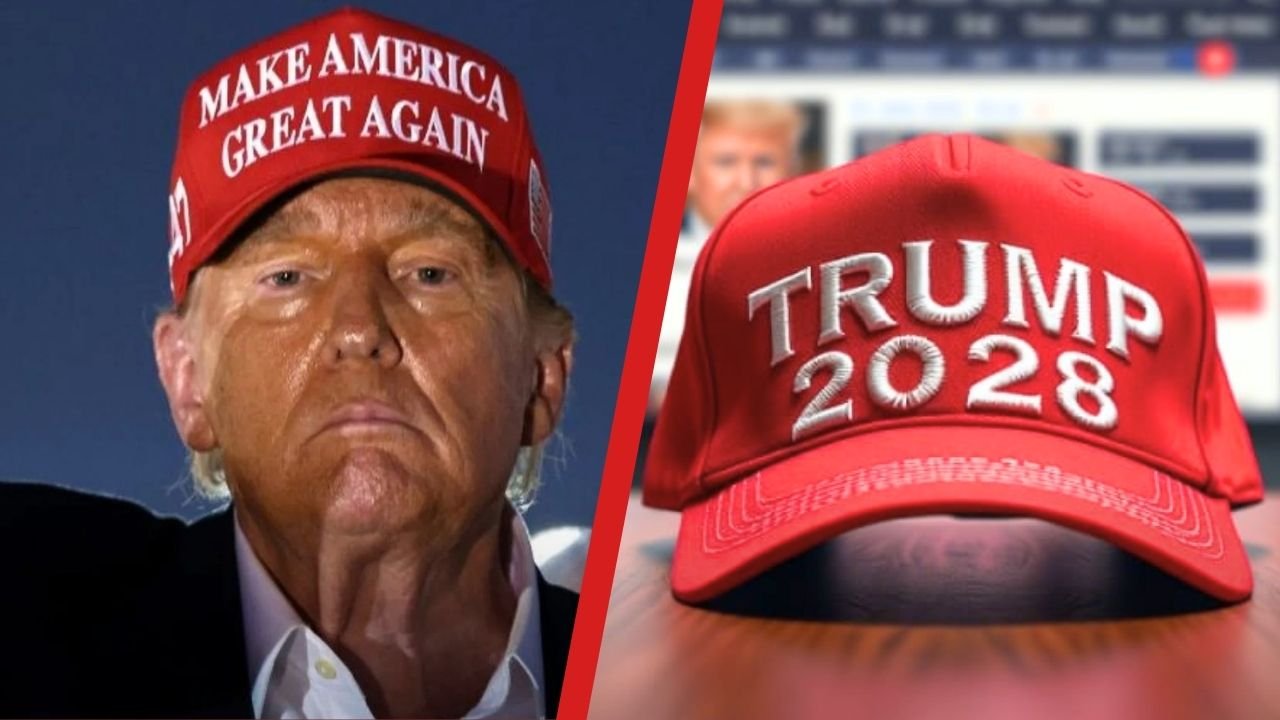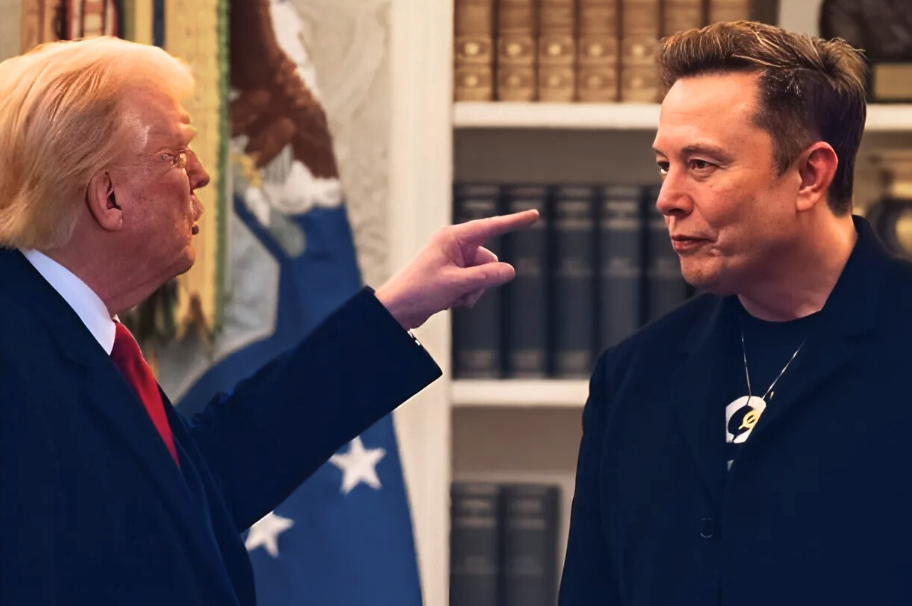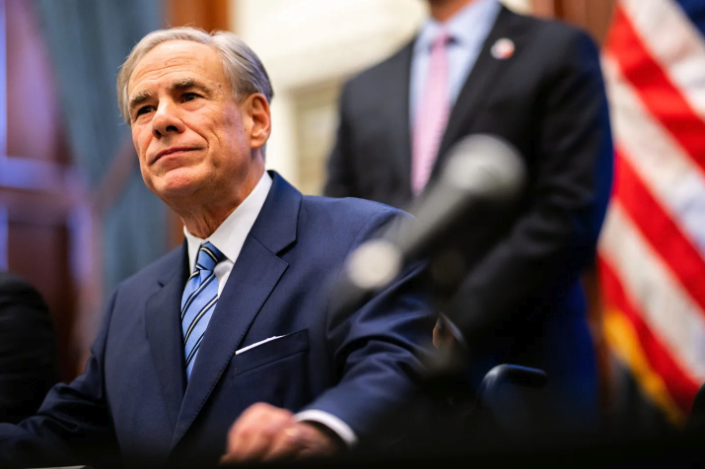Donald Trump Reveals ‘Loopholes’ for pursuing a Third Presidential Term

Donald Trump, the 45th and 47th President of the United States, has reignited a firestorm of debate by suggesting he could run for a third term, despite the U.S. Constitution’s explicit prohibition.
In a March 30, 2025, interview with NBC News, Trump claimed there are “methods” to circumvent the 22nd Amendment, which caps presidential service at two terms.
His remarks have sparked intense discussions among legal scholars, politicians, and the public about the feasibility, legality, and implications of such a move.
As Trump navigates his second term, his comments raise questions about his intentions and the durability of constitutional norms.
This report explores Trump’s statements, the proposed loopholes, the legal and political barriers, and the public’s response to the prospect of a third Trump presidency.
Trump’s Provocative Statements
Trump’s latest comments came during an NBC News interview, where he was asked about his earlier musings on seeking a third term.
“There are methods which you could do it,” he said, adding, “Well, there are plans. There are—not plans. There are methods—there are methods which you could do it, as you know.” He made it clear he was “not joking,” a shift from previous instances where he downplayed similar remarks as jest.
At a press conference aboard Air Force One, Trump elaborated, saying, “I’m not looking at that, but I’ve had more people ask me to have a third term.”
He emphasized his focus on the current term, noting, “We have almost four years to go.”
These statements follow a pattern of provocative rhetoric, including a February 2025 Truth Social post where he likened himself to a “king,” prompting an outcry and a satirical response from the White House, which shared a fake Time magazine cover depicting Trump as a monarch (The Guardian).
Trump’s history on this issue is inconsistent. In a prior TIME Magazine interview, he said, “I’m going to serve one term. I’m going to do a great job, and I’m going to leave.”
When asked what changed, he replied, “Well, I’m serving two terms now.” This flip-flop has fueled speculation about his true intentions and whether he’s testing public and political reactions.
The Constitutional Loophole: A Legal Gray Area?
The 22nd Amendment, ratified in 1951 after Franklin D. Roosevelt’s four terms, states: “No person shall be elected to the office of the President more than twice.”
Enacted to prevent prolonged presidential power, it was a response to FDR’s tenure, which included elections in 1932, 1936, 1940, and 1944 before his death in 1945.
The amendment’s language is clear, but some Trump supporters and legal theorists argue it leaves room for interpretation.
One proposed loophole suggests Trump could run for vice president in 2028, perhaps on a ticket with Vice President J.D. Vance.
If the ticket wins, the president could resign immediately after inauguration, allowing Trump to assume the presidency through succession rather than election.
This theory relies on the amendment’s focus on being “elected” to the presidency, not serving more than two terms.
Mark Joseph Stern, in a Slate article, described this as a “potential workaround” that a president with authoritarian ambitions might exploit.
He noted that the 12th Amendment, which governs presidential and vice-presidential qualifications, does not explicitly bar this scenario, as it aligns the eligibility criteria for both offices.
However, Stern cautioned that such a move would likely face legal challenges, given the amendment’s intent.
Another angle involves Trump’s non-consecutive terms. Because his first term (2017–2021) and second term (2025–present) are separated by Joe Biden’s presidency, some argue he could be eligible for another term.
This idea was floated by Rep. Andy Ogles, who suggested amending the Constitution to allow three non-consecutive terms, a proposal tailored to Trump’s unique situation.
Legal Experts Dismantle the Loophole
Legal scholars overwhelmingly reject the loophole theory. David A. Super, a professor at Georgetown University Law Center, called it “implausible” in an email to FactCheck.org.
He argued that the 12th Amendment makes the qualifications for president and vice president identical, meaning Trump’s ineligibility for a third presidential election would also bar him from the vice presidency if it leads to the presidency.
Paul Gowder, from Northwestern Pritzker School of Law, emphasized that the loophole argument “defeats the clear intent” of the 22nd Amendment.
“The drafters were explicit about preventing any president from serving more than two terms to avoid power consolidation,” Gowder said.
He noted that no president since the amendment’s ratification has seriously pursued a third term, reinforcing a constitutional consensus.
Kermit Roosevelt, a University of Pennsylvania law professor, added that any attempt to exploit this loophole would have “extremely low” odds of success in court.
“The concern the 22nd Amendment addresses is that someone who serves more than two terms might accumulate too much power,” he said.
“That concern applies regardless of how the third term is achieved.”
Jonathan Turley, a constitutional law expert, weighed in, stating, “While creatively argued, this interpretation stretches the Constitution beyond its intended meaning.
The Supreme Court would likely strike it down.” Similarly, Harvard’s Laurence Tribe called the idea “legally baseless,” arguing that the Constitution’s text and history preclude more than two terms.
| Legal Arguments Against the Loophole | Details | Source |
|---|---|---|
| Implausible Interpretation | The 12th Amendment aligns president and VP qualifications, barring Trump from VP if it leads to presidency. | David A. Super, FactCheck.org |
| Defeats Clear Intent | The 22nd Amendment aims to prevent power consolidation, regardless of election method. | Paul Gowder, FactCheck.org |
| Historical Practice | No post-1951 president has pursued a third term, supporting constitutional consensus. | Paul Gowder, FactCheck.org |
| Low Court Success Odds | Courts would likely uphold the amendment’s intent over literal wording. | Kermit Roosevelt, FactCheck.org |
Political Efforts: A Steep Uphill Battle
On the political front, Rep. Andy Ogles (R-Tenn.) introduced a resolution in January 2025 to amend the Constitution, allowing presidents to serve up to three non-consecutive terms (Firstpost).
This would make Trump eligible to run in 2028, unlike former presidents like Barack Obama or Bill Clinton, whose terms were consecutive.
Ogles’ proposal reads: “No person shall be elected to the office of the President more than three times, nor be elected to any additional term after being elected to two consecutive terms.”
However, amending the Constitution is a daunting task. It requires a two-thirds majority in both the House and Senate, followed by ratification by three-quarters of the states—38 out of 50.
Given the polarized political climate, experts deem this nearly impossible.
Sen. Markwayne Mullin (R-Okla.) has already opposed the idea, stating, “I’m not changing the Constitution unless the American people choose to do that” (The Guardian).
Trump himself has expressed ambivalence about such maneuvers.
In a TIME Magazine interview, he acknowledged “loopholes” but said, “I don’t believe in loopholes. I don’t believe in using loopholes.” This contrasts with his NBC comments, adding to the ambiguity surrounding his plans.
Public Sentiment: Waning Support?
Public support for Trump’s leadership appears to be declining. A Pew Research Center poll from April 2025 showed his approval rating at 40%, down from 47% in February.
This drop may reflect dissatisfaction with his handling of issues like the economy, immigration, or ongoing legal battles.
A hypothetical poll suggested only 35% of Americans would support Trump running again in 2028, with 55% opposed.
These figures indicate that while Trump retains a loyal base, a significant portion of the electorate is ready to move on.
His comments about a third term may further polarize voters, especially among those wary of challenges to democratic norms.
David Jolly, a former Republican congressman, warned on MSNBC that Trump’s remarks should be taken seriously.
“If he says he’s not ruling it out, then he’s not ruling it out, and we should consider it a constitutional threat,” Jolly said (The Guardian).
Historical Context: The 22nd Amendment’s Origins
The 22nd Amendment was a direct response to Franklin D. Roosevelt’s four-term presidency, which ended with his death in 1945.
Elected in 1932, 1936, 1940, and 1944, FDR’s tenure raised concerns about the risks of prolonged executive power.
The amendment, proposed by a Republican-led Congress, aimed to ensure no president could dominate the office indefinitely.
Since its ratification, the amendment has been unchallenged in practice.
Presidents like Dwight Eisenhower, Ronald Reagan, and Bill Clinton adhered to the two-term limit, even when popular.
Trump’s suggestion of a third term marks a rare departure from this norm, raising alarms about potential precedent-setting.
Implications: A Test of Democratic Norms
Trump’s comments are more than political theater—they test the resilience of constitutional safeguards.
His history of challenging norms, from questioning the 2020 election results to his role in the January 6 Capitol riot, amplifies concerns.
Ian Bassin, a former Obama White House counsel, told POLITICO that dismissing Trump’s third-term talk is naive: “Anyone who says the 22nd Amendment will deter Trump has been living on a different planet.”
Yet, the barriers are formidable. Legal challenges would likely thwart any loophole attempt, and political realities make a constitutional amendment improbable.
The Supreme Court, even with its conservative lean, is unlikely to endorse a reading that undermines the 22nd Amendment’s purpose.
A Distant Prospect
Donald Trump’s talk of a third term blends ambition, provocation, and legal creativity.
While he claims there are “methods” to bypass the 22nd Amendment, experts dismiss these as legally untenable.
Political efforts to amend the Constitution face insurmountable hurdles, and public support for another Trump term appears limited.
As the 2028 election approaches, the debate over term limits and presidential power will persist, but for now, a third Trump presidency remains a distant and unlikely prospect.















